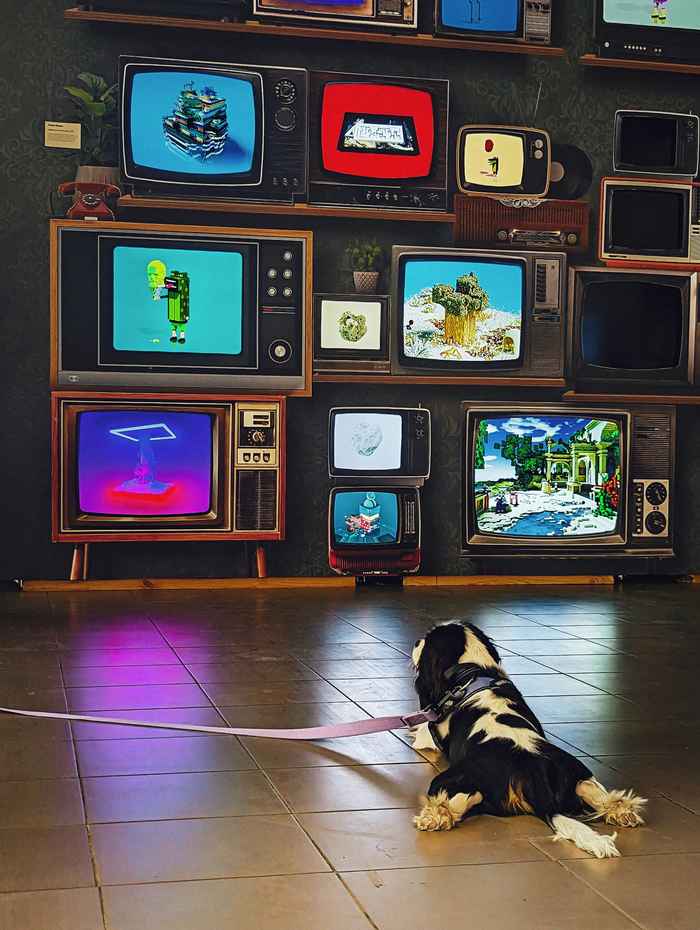Humor and its Political Affordances Today: From Nostalgia to Cancel Cultures
- Date
- 31 May 2024
- Location
- Bushuis/Oost-Indisch Huis
- Room
- Bushuis, room F2.11B

Humor and its Political Affordances Today: From Nostalgia to Cancel Cultures
Workshop Organized by: Spiros Chairetis & Maria Boletsi | With the support of ASCA and the ASCA group “Crisis, Critique and Futurity”| 30-31 May 2024
Registration: If you wish to attend the 30th of May online workshop, please contact us (s.chairetis@uva.nl) by May 25, 2024, and we will send you the zoom link. To secure your spot at the 31st of May on-site workshop, please RSVP as early as possible because room capacity is limited.
Programme 30th May (online)
16:00 – 16:15 Opening remarks
16:15 – 17:15 Panel 1: Making Sense of Humor in Cinemas
Diego Hoefel (Federal University of Ceará/CineLab at Ifilnova), Ghost Killers Vs. Bloody Mary: Culture Wars, Sexist Humor and Allegorical Horror in the Brazilian Parody of Ghostbusters
Klaudia Rachubińska (Institute of Art, Polish Academy of Sciences), Nazism, Cannibalism, Cancer and Zoophilia. The Pathetic Ethics of Anders Thomas Jensen’s Edgy Humor
17:15-18:15
Panel 2: Humor/ Trauma/ Pedagogy
Lingli Ren (University of Amsterdam), Humoring the Global Trauma: The Political Aesthetics of the Chinese “Northeastern Renaissance”
Rujuta Date (Independent Researcher), Ridiculous Audacity: Making (Up) a Humor Studies Pedagogy
Programme 31st May (on-site)
09:30 – 09:50 Welcome and Coffee
09:50 – 10:00 Opening remarks
10:00 – 12:00 Panel 1: Humor Across National Politics & Cultures
Dick Zijp (Utrecht University), Comic Innocence
Beer Prakken (University of Groningen), Humorous Political Rhetoric
April Reber (Brigham Young University-Provo), Humor and Alternative for Germany: Creating a “normal” Germany
Panagiotis Zestanakis (Linnaeus University), The Funny ‘Change’: Humor and (politicised) nostalgia on the Greek 1980s
12:00 – 12:15 Coffee break
12:15 – 13:15 Panel 2: Humor in Memes, Political Cartoons & Caricatures
Guilherme Giolo (Erasmus University Rotterdam), That did not age well: Humor, time, and cancel culture
Yasco Horsman (Leiden University), Biting Pictures: From Pittura Infamante to Contemporary Caricature
13:15 – 14:15 Lunch break
14:15 – 16:15 Panel 3: Humor as a Tool for (Challenging) Othering
Linde Luijnenburg (University of Amsterdam), Postcolonial Reflection avant-la-lettre in the Commedia all’italiana
Marcel van den Haak (University of Amsterdam), Freedom versus responsibility – An analysis of debates on controversial humor in the Netherlands
Graham Riach (University of Amsterdam), Black British Laughter
Spiros Chairetis (University of Amsterdam/Panteion University), The Unacceptables (MEGA, 1991-1993): Gay Stereotypes, Straight Panics, and the Elusive Targets of Humor
16:15 – 16:30 Break
16:30 – 17:30 Panel 4: Humor, Entertainment, Spectacle
Mengdi Zhu (Leiden University), Playful sketch comedies at Chinese Spring Festival Galas: Exploring the current audience reception and playful engagement in a media event
Joyce Goggin (University of Amsterdam), “A vision of love wearin’ boxing gloves and singin’ hearts and flowers”: Taylor Swift’s Political Humor
17:30 – 18:00 Final discussion
In recent years, a series of events have thrust humor into the spotlight of social discussions. For instance, in 2019, Shane Gillis, an American comedian and radio personality, faced dismissal from Saturday Night Live due to public outcry regarding his prior use of homophobic slurs during a podcast. In 2020, Netflix removed The Mighty Boosh and The League of Gentlemen from its platform due to concerns about blackface, while several stand-up comedians have publicly contended that the culture of "wokeness" is committed to extinguishing humor.
At the same time, the COVID-19 pandemic acted as a catalyst for a nostalgic return to old and familiar forms of humor. Since the pandemic, as countries worldwide implemented varying curfew measures and encountered diverse challenges, there appeared to be a significant shift towards humor, disseminated through television reruns and revisiting of beloved comedies and sitcoms. This phenomenon has sparked numerous newspaper articles and opinion pieces, exploring both the allure of familiar content and the limitations of older material.
Technology has also played a significant role in the circulation of humor through various online forms. Memes featuring witty lines from popular actresses and actors proliferate on platforms like Instagram and Facebook, creating a shared language among individuals with similar tastes and ideological leanings. Moreover, comedic scenes from movies are reinterpreted, and entire comedy shows are transformed into merchandise, including coffee mugs, cards, and other ephemera.
The study of humor encompasses an interdisciplinary field that delves into its ideology, functions, and effects. Over decades, scholars from disciplines such as philosophy, linguistics, anthropology, and media have contributed to a substantial body of work, dissecting various aspects of humor. These include its ideological underpinnings, aesthetic qualities, formal structures, role in identity construction, as well as the representation of particular groups of people within comedic texts. While humor has been approached through diverse lenses, there is a tendency by scholars to put emphasis in their analysis on the meaning of jokes or view humor as inherently transgressive and/or ambiguous. In their introductory article for the special issue titled 'The Politics and Aesthetics of Humour in an Age of Comic Controversy,' Ivo Nieuwenhuis and Dick Zijp take a more nuanced approach and conceptualize humor “in the plural, as a set of cultural and aesthetic conventions, styles, and genres which vary with cultural and historical context” (2022:6). Departing from celebratory interpretations of humor, Nieuwenhuis and Zijp advocate for a serious and meticulous examination of humor as “a set of cultural practices embedded in social hierarchies and power relations” (2022:7). Taking cue from these scholars, in this workshop, we aim to explore facets of humor both within their originary contexts and in the contexts in which they are (re)interpreted.
In scholarly endeavors aimed at developing a common framework to grasp facets of contemporary humor, case studies from the United States and Britain have been prevailing within the field. This workshop is especially keen on shifting away from this Anglo-centric approach to also delve into perspectives and understandings of humor from Europe and other parts of the world, in which humor has been underexplored. In this event, we invite scholars in Cultural Studies, Film, Television, and the Visual Arts, Media Studies, Memory Studies, Gender and Queer Studies, Fat Studies, Anthropology, among others, who integrate the political aspects of humor in their work, to participate. Possible topics and approaches include, but are not limited to:
- The styles and conventions of humor
- The power dynamics of humor
- Humoring the 'Other'
- Feminist and queer perspectives on humor
- Humor and fan/online communities
- Humor in internet memes
- Humor and stardom
- Humor and audience reception
- Re(reading) humor in older comedy texts
- The pedagogy of humor
If you are interested in participating as a speaker at this workshop, please send a title, a brief description of your proposed topic (approximately 200-300 words), and a short biographical note to the.humor.workshop@gmail.com by April 7th. The organizers will review the submissions and notify the applicants of their decision by April 15th.
Each speaker will be allocated 15 minutes for their presentation, followed immediately by a comprehensive discussion. This format ensures that each paper receives individual and thorough consideration following its presentation.
For any inquiries, please direct them to the workshop organizers, Spiros Chairetis (s.chairetis@uva.nl) and Maria Boletsi (m.boletsi@uva.nl).
